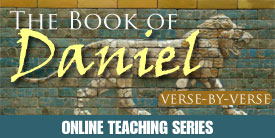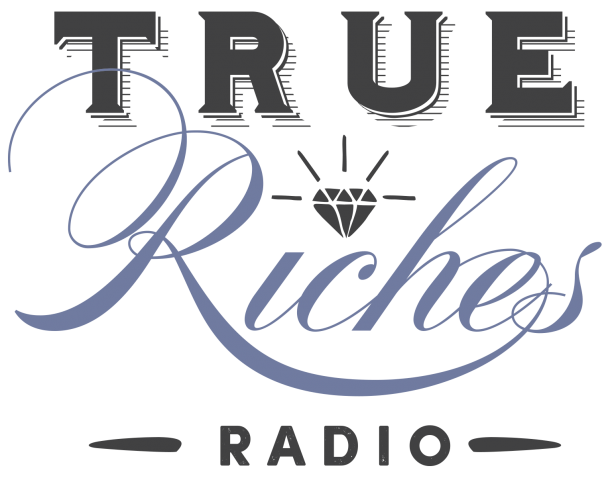Today, millions of Christians believe America to be a “Christian” nation that is exceptional in many ways.
But is America really a “Christian” nation?
Those who view America as a “Christian” nation often point to the country’s founding principles and may even speak of the need to “take back our nation for God.”
Before continuing with our 15 thought-provoking questions — that I hope many of you will print and use in your Sunday School class to stoke group discussions — let us first stop to define the word “Christian” and briefly explain what it means to use it in conjunction with a physical nation.
Aren’t “Christian” And “Christlike” The Same Thing?
According to my understanding, a “Christian” is an individual who believes Jesus Christ to be God incarnate and simultaneously the only begotten Son of God. In response to this Holy Spirit-inspired revelation, the Christian surrenders his life to God’s will and purposes. As a Christian, he values and esteems the teachings of Jesus so highly that he abandons all to follow in the footsteps of Christ. Through a consistent examination of God’s Word — the Bible — he relies upon the power of God to align his values and his ideas with those of his Savior. He trusts in the direction of God’s Holy Spirit. Finally, he submits himself to God’s divine reshaping and remolding process which will ultimately allow him to reflect the righteous character of his Master and Lord, Jesus Christ.
Put simply, a Christian is one who is Christlike.
However, when members of the “Religious Right” refer to America as a “Christian” nation, do you believe that this definition of “Christian” is what they have in mind? Are they really trying to say that America is Christlike?
And what about you? If you believe that America was, and is, a “Christian” nation, what definition are you using for “Christian?”
Is there another definition of a “Christian” that we should consider instead of Christlikeness?
Personally, I would prefer to avoid too much creativity on this definition. As J. Dwight Pentecost once wrote: “When the plain sense makes common sense, seek no other sense.” So, I feel comfortable maintaining the definition of “Christian” as “Christlike.” So, throughout the remainder of this piece, I will replace the ambiguous phrase “Christian” nation with the more lucid phrase, “Christlike” nation.”
I am fully aware that this article will provoke anger from some Christians. To those, I would say that my intentions through this article are absolutely sincere. Before coming to Christ in 1994, I was raised as one of Jehovah’s Witnesses. It took me several years of sound Biblical teaching and prayer to escape the clutches of that false cult. So, when I was born again, I came into the fold with eyes wide open. I fully understand the destructive power of brainwashing that religious leaders can wield if they so choose. Therefore, this article is presented more as a challenge to the prevailing wisdom of Christian nationalism, and less as an assault upon anyone’s deeply held beliefs.
Because we live in such an intellectually dishonest age where truth is a constant casualty, I feel that I should stress again that I am a firm believer in Christ. No one that knows me personally would ever accuse me of being a “liberal” Christian or a “liberal” politik. I believe that God’s Word is the only source of absolute truth. In theology, I am considered ultra-conservative. As a Christ-follower, I believe my job on this earth is to spread His fame and glory through obedience to His commands. It is important to me that you respect this because the questions that I will provoke you with below will tempt the laziest among you to marginalize me and lead you to dismiss the importance of contemplating the questions posed in this article. I implore you to “think” and research the validity of the questions below before leaving a comment. Also, any comments that attempt to “prove” America is a Christian nation that is expressed in a non-Christlike manner will not be approved. However, I strongly welcome well thought out comments that seek to challenge the thesis of this article, assuming they are worded in a spirit of love.
So, with all of those preliminaries out of the way, let us begin…
Below are 15 thought-provoking questions that I myself began struggling with many years ago. The purpose of these questions is to both educate and create a sense of humility regarding the human condition. I have used these questions in group settings and it is amazing what kind of reactions you get based on different perspectives.
15 Questions For Those Who Believe America is a ‘Christian Christlike Nation’
What is your view of the Native Americans?
1. In 1492, North America was home to anywhere from 7 to 18 million inhabitants based on conservative figures of historical data. Letters from early North American explorers, like Juan Rodríguez Cabrillo, document communities living in relative peace and harmony as compared to a war-torn Christian Europe. These early North Americans had built their cities and villages around a developed legal system. So too, the early North American peoples intentionally lived so as to preserve the earth for the benefit of future generations. How do you think these early North American families and tribes viewed the early European settlers when they began arriving en masse in the 1600s? In your opinion, would it be normal for these early North Americans to view Europeans with suspicion?
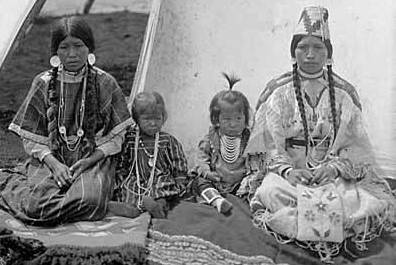
Were Early American Settlers "Christ-like?"
2. After a war between the Puritans and the Pequot Indians in the late 1630's, Puritan leader John Mason wrote these celebratory words: "Let the whole Earth be filled with his Glory! Thus the LORD was pleased to smite our Enemies in the hinder Parts, and to give us their Land for an Inheritance." Do you agree with John Mason that God "was pleased" to bring death and destruction upon the Native American peoples in order to give the land of North America to English colonists as an "inheritance?" Is it accurate to call these violent actions on the part of the early European settlers "Christlike?"

DId God Gift America To Protestants?
3. In the Old Testament, God tells Abraham that as the father of the Jewish people, he and his seed will be given the land of Israel as an inheritance. (Gen. 17:8) Similarly, do you believe that God "gave" North America to the early European settlers as John Mason suggests? If so, is North America the only land that God wanted to "give" to the early European settlers? What if there are more lands that God wants to "give" to Americans as an inheritance? Would you be willing to publicly support further invasions of sovereign lands today so that America could receive those inheritances? Could any of these invasions into sovereign territories be accurately called "Christlike?"
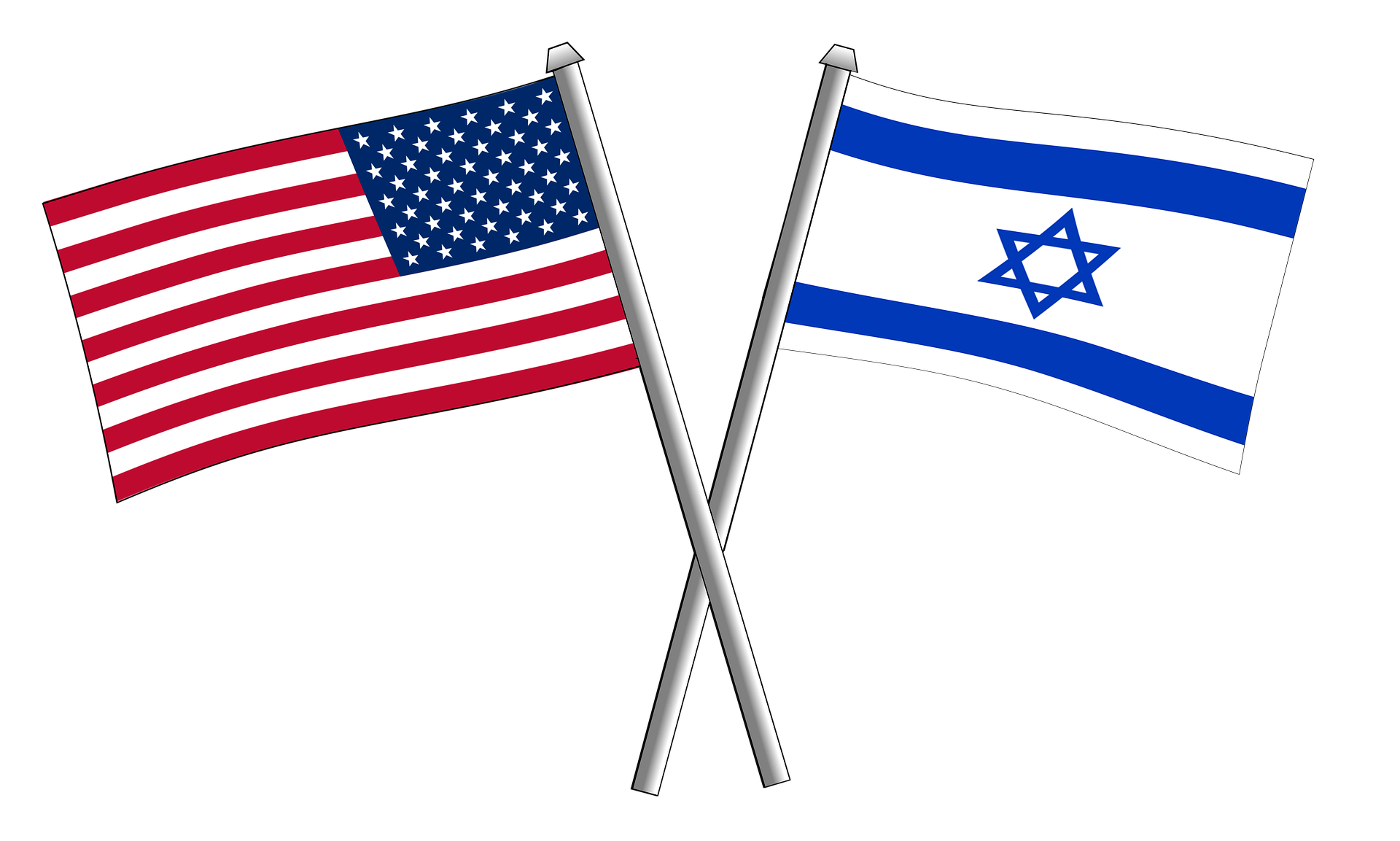
Do "God-Given" Rights Extend to All -- Or Just Some?
4. In 1823, the U.S. Supreme Court ruled that while Native Americans (Indians) could occupy land, they were not permitted to hold title to, or own, the land. Given that America was founded on the basis that "all men are created equal," how can the early American government's stripping of the basic property rights of Native Americans be considered Christlike?

Were Early Native Americans Treated In A "Christ-like" Way?
5. In 1830, President Andrew Jackson signed the Indian Removal Act into law. This law, which had the support of the majority of Americans, forced Native Americans living in Eastern states to emigrate Westward across the Mississippi river to make room for the expansion of American settlers and for gold speculators seeking virgin lands to exploit. Over 4,000 Cherokee Indians died tragically in what is known today as the Cherokee Trail of Tears. Is it possible to justify early America's mistreatment of the original inhabitants of North America as Christlike?
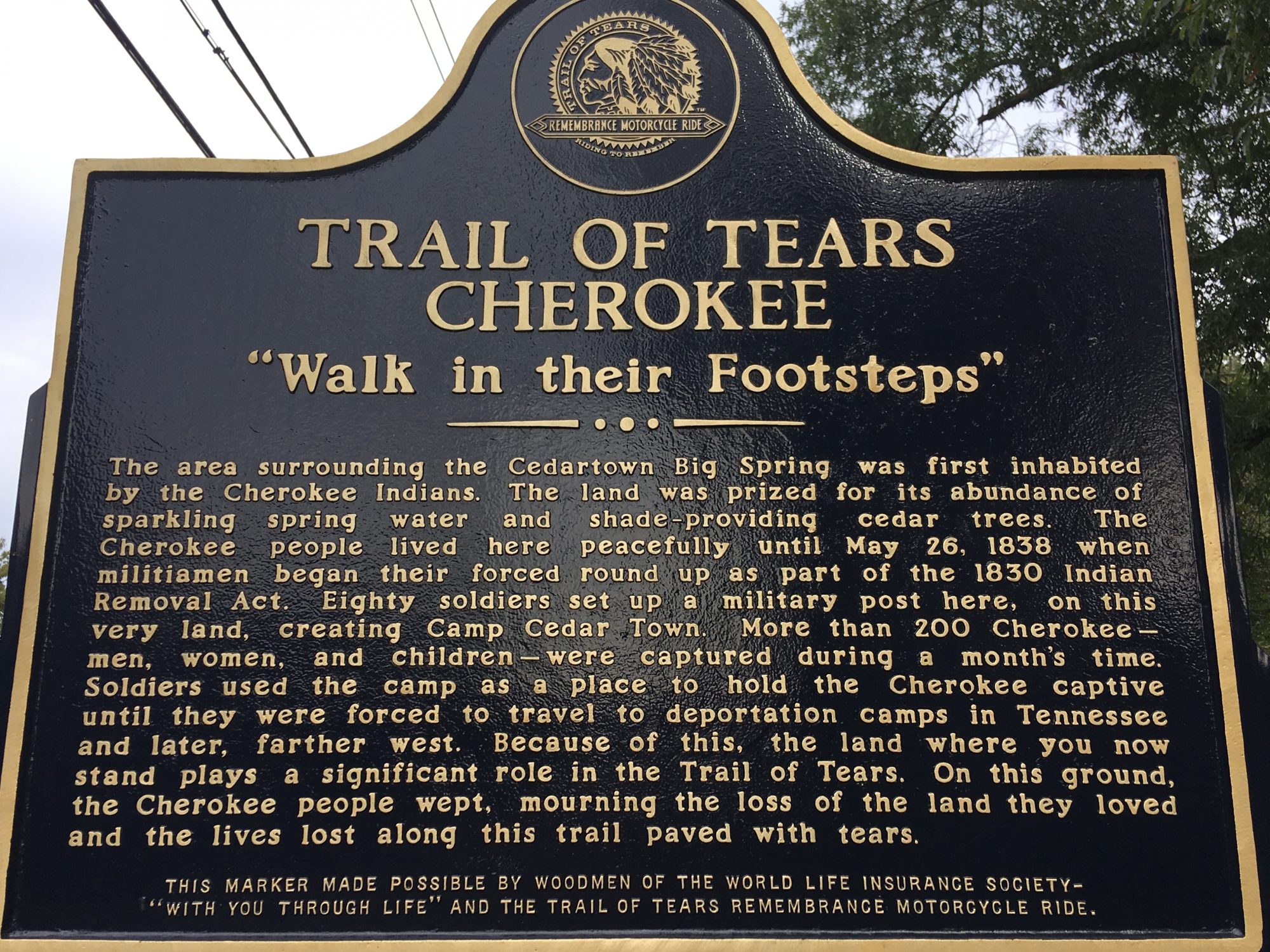
What Is Your View Of The Rape And Enslavement Of Native Americans?
6. In 1848, America's Westward expansion, coupled with the California gold rush, led to further massacres of Native Americans. The Indians that had been forcibly moved to the Western states were now in harm's way yet again. Native American men were slaughtered, women were raped, and children were sold into slavery. Indian boys sold for $60 and Indian girls sold for $200. Have you ever been confronted with these facts before? Would you describe these actions as those of a "Christlike" nation?
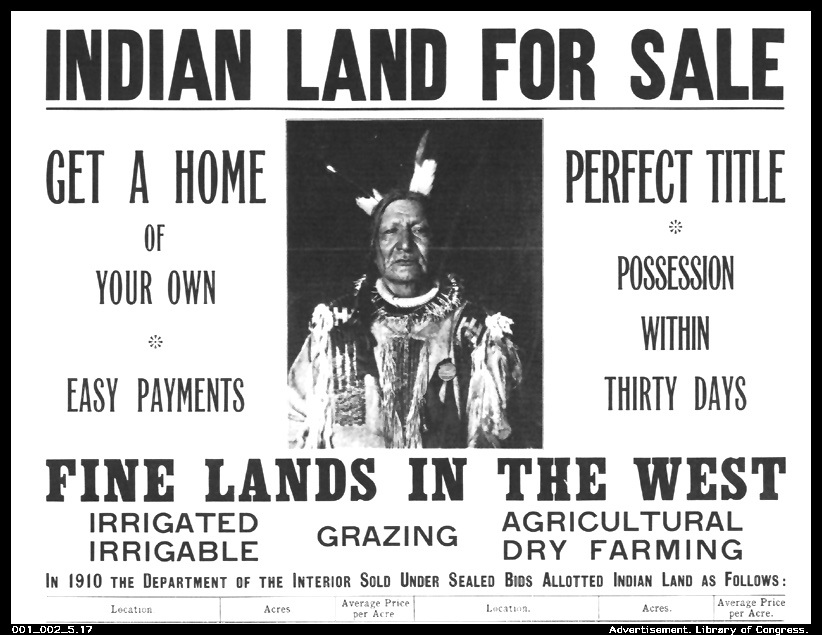
Do You Agree That Native American Genocide Was Beneficial?
7. Regarding the extermination of the American Indians and the expropriation of their lands, President Theodore Roosevelt said that it "was as ultimately beneficial as it was inevitable. Such conquests are sure to come when a masterful people, still in its raw barbarian prime, finds itself face to face with the weaker and wholly alien race which holds a coveted prize in its feeble grasp." Do you agree with the former U.S. President that the genocide of the Native Americans was "beneficial" because white Americans were a more superior and "masterful" race than the "weaker" Natives? Are there any discernable differences between Roosevelt's speech and the anti-Semitic rhetoric of Nazi Germany?
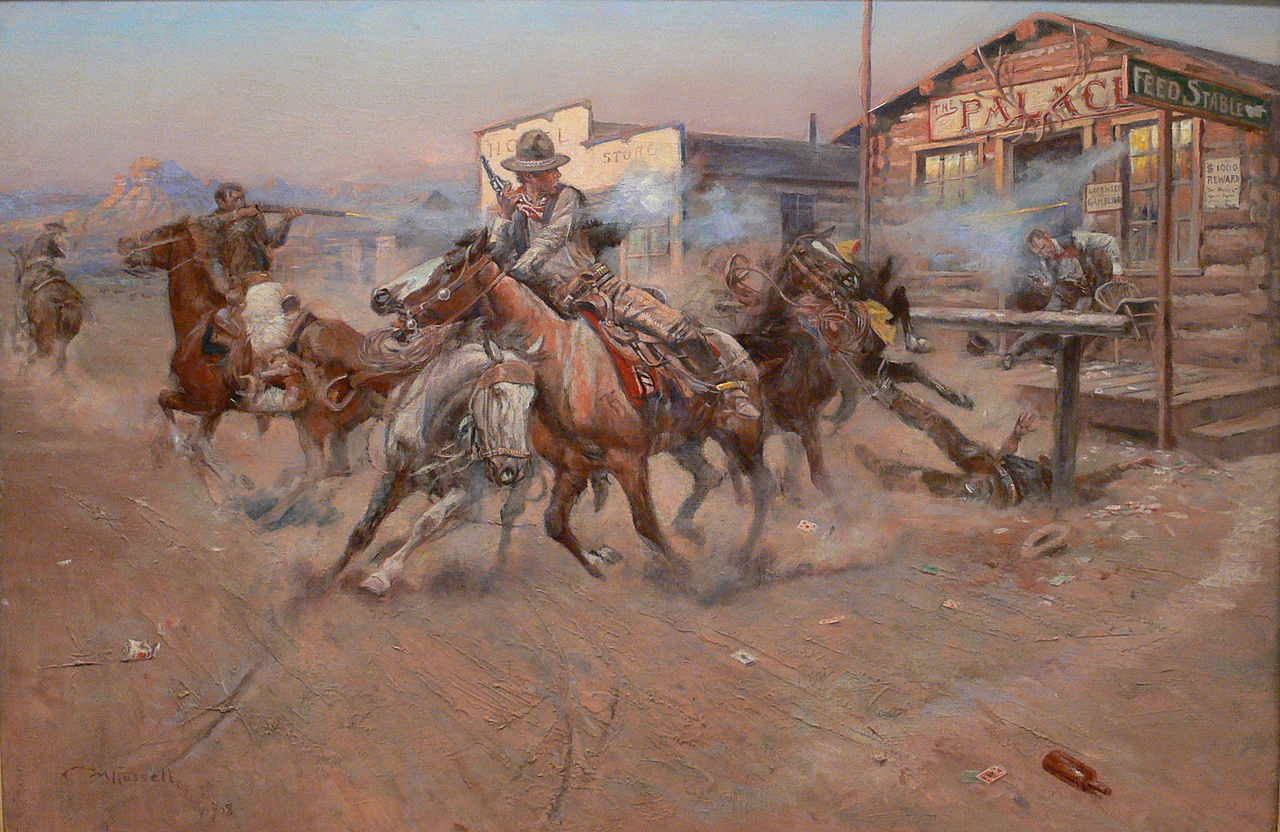
What Is Your Opinion Of The Native American Holocaust?
8. According to Holocaust scholar, Dr. David Cesarani, "in terms of the sheer numbers killed, the Native American Genocide exceeds that of the (Nazi-led) Holocaust." Should modern day Christians excuse the murder, rape, and destruction of America's indigenous peoples by early American colonists, even if it was done in the name of Christ?
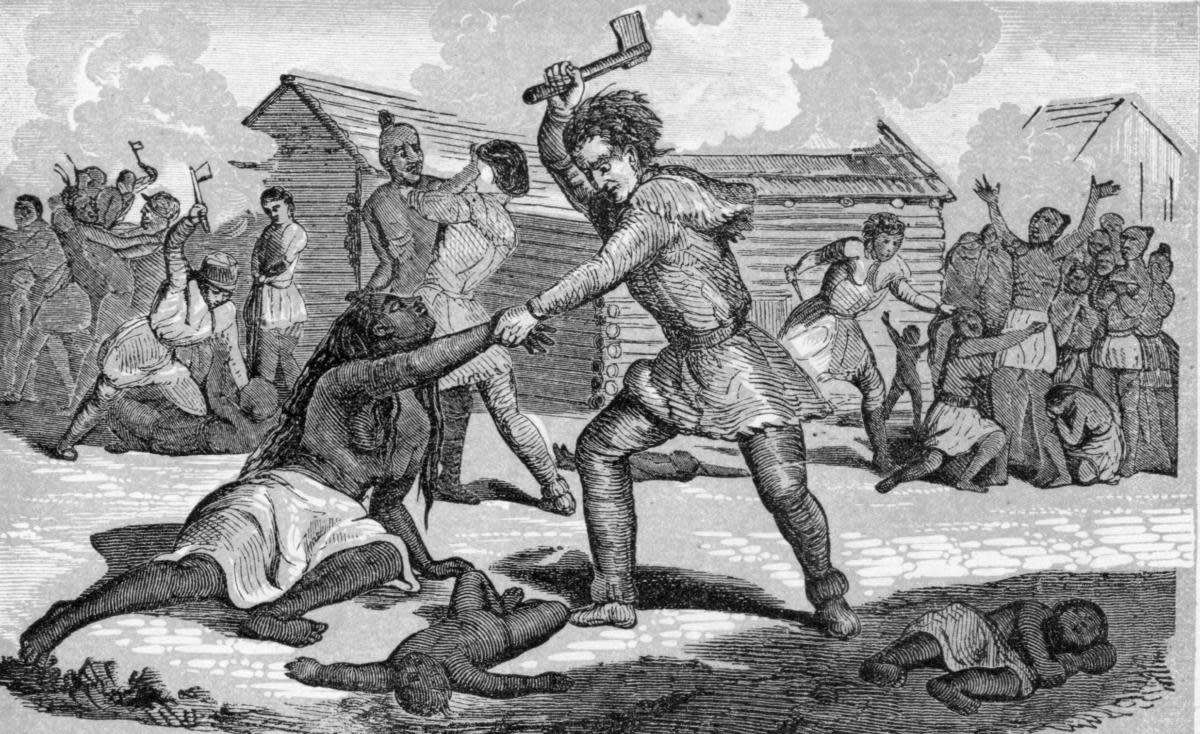
Can A Nation Be "Christian" Without Being "Christ-like?"
9. Some might argue that America's mistreatment of the Native Americans was rooted in a basic ignorance of scripture. But how could early America be coined a "Christian" nation without its leaders having a basic understanding of Christ's teachings as found in Holy Scripture?

Were The Native Americans Not Acting In Self-Defense?
10. Others might argue that the mistreatment of Native Americans by early European settlers was strictly based upon self-defense. However, a proper reading of history demonstrates that the Native Americans did not seek out the Americans to do them harm but were instead themselves invaded by outside colonizers who sought to conquer their land. Therefore, it was the Native Americans, not the European colonists, who viewed their struggle as an act of self-defense. Which side do you personally believe was truly acting in self-defense? The natives who had inhabited the land for over a millennia, or the European settlers who had come in search of a better life, and in later years, in search for gold?
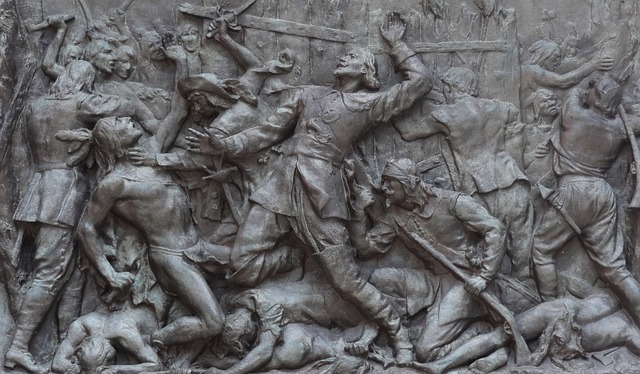
Do You Condone "Christian-on-Christian" Bloodshed?
11. Can you name one other country besides America which, as a matter of national policy, sought to wipe out its indigenous population? Can you name one other country where "Christians" had to kill "Christians" to create their country and, again, to eradicate slavery?
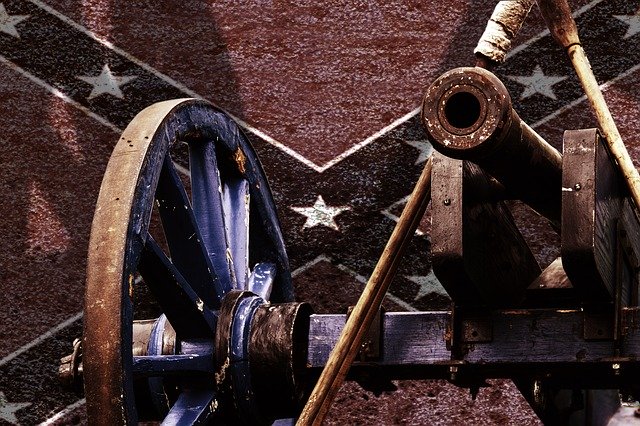
Which Of The 8,000+ Protestant Denominations Represents The True Christian Faith?
12. If America were to be officially declared as a "Christian" nation, which of the nearly 8,000+ Christian denominations would represent the national Christian faith?
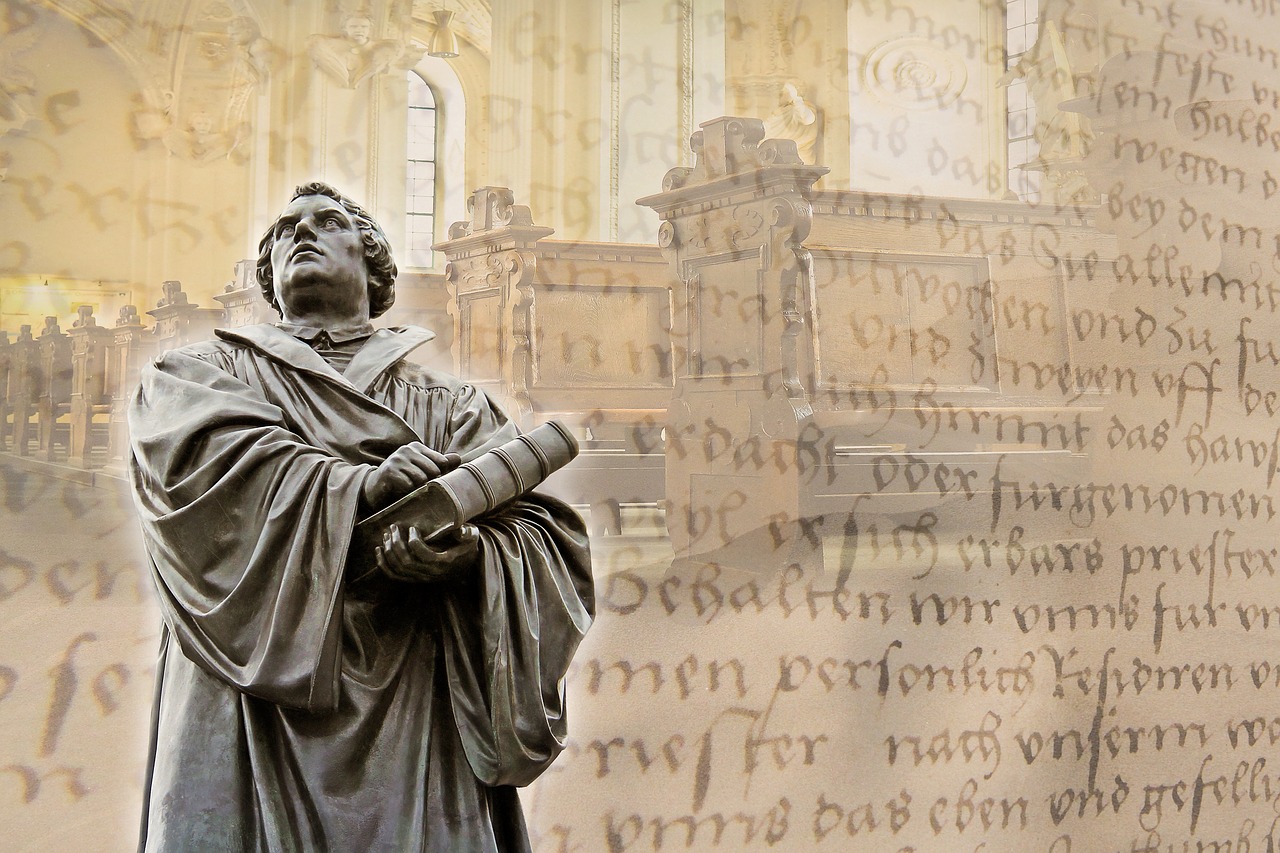
Was The Early Church Wrong To Avoid Violence?
13. Early church history reveals that, while the first Christians respected the governing authorities, they in no way condoned violence and bloodshed, even through the use of military force. Consider these words by renowned church historian, Kenneth Scott Latourette: "For the first three centuries, no Christian writing which has survived to our time condoned Christian participation in war. Some Christians held that for them all bloodshed, whether as soldiers or as executioners, was unlawful. At one stage in its history the influential Church of Alexandria seems to have looked askance upon receiving soldiers into its membership and to have permitted enlistment in the legions only in exceptional circumstances." (A History of Christianity, pp. 242-243) Given these facts, what type of attitude do you believe the American church should have towards the U.S. military?
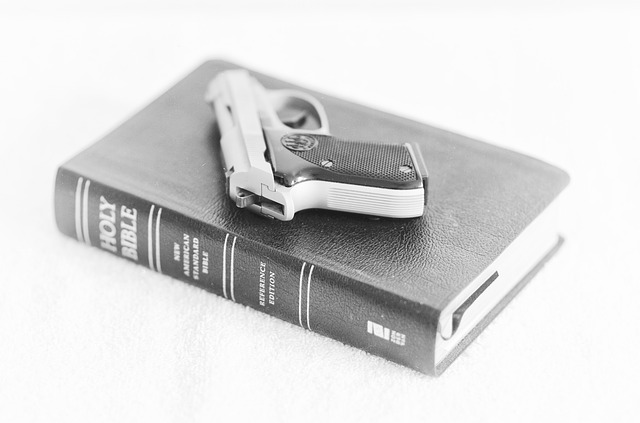
Why Do Modern Christians Look So Different Than Early Christians?
14. Early Christians were opposed to involvement in the military for many reasons. Several of these reasons were summarized by Adolf von Harnack when he wrote: "The shedding of blood on the battlefield, the use of torture in the law-courts, the passing of death-sentences by officers and the execution of them by common soldiers, the unconditional military oath, the all-pervading worship of the Emperor, the sacrifices in which all were expected in some way to participate, the average behaviour of soldiers in peace-time, and other idolatrous and offensive customs — all these would constitute in combination an exceedingly powerful deterrent against any Christian joining the army on his own initiative." Do you think that early Christians were wrong to avoid entangling themselves in the world's military disputes over territory and natural resources? How about today?

Are Nuclear Bombs Necessary For A "Christ-Like" Nation?
15. Is it possible for a country to be "Christlike," and at the same time, possess the largest armed forces and weapons arsenal in world history?
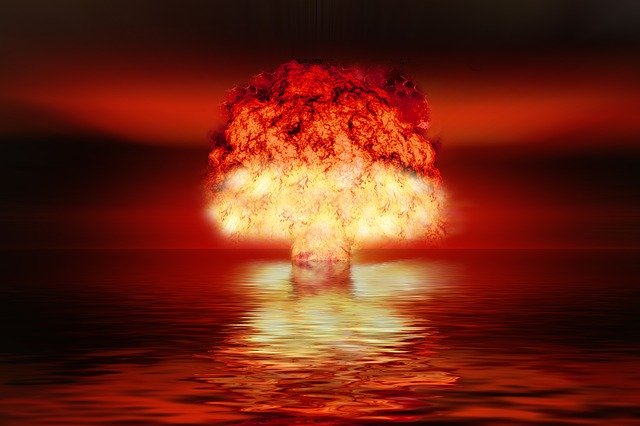
There are many more questions we could ask. But these 15 questions are designed to get you thinking about what you believe and why you believe it.
If you have read this far, this article must have connected with you in some way. Please share your thoughts, questions in the comments section below.
Blessings,
Jerry Robinson



